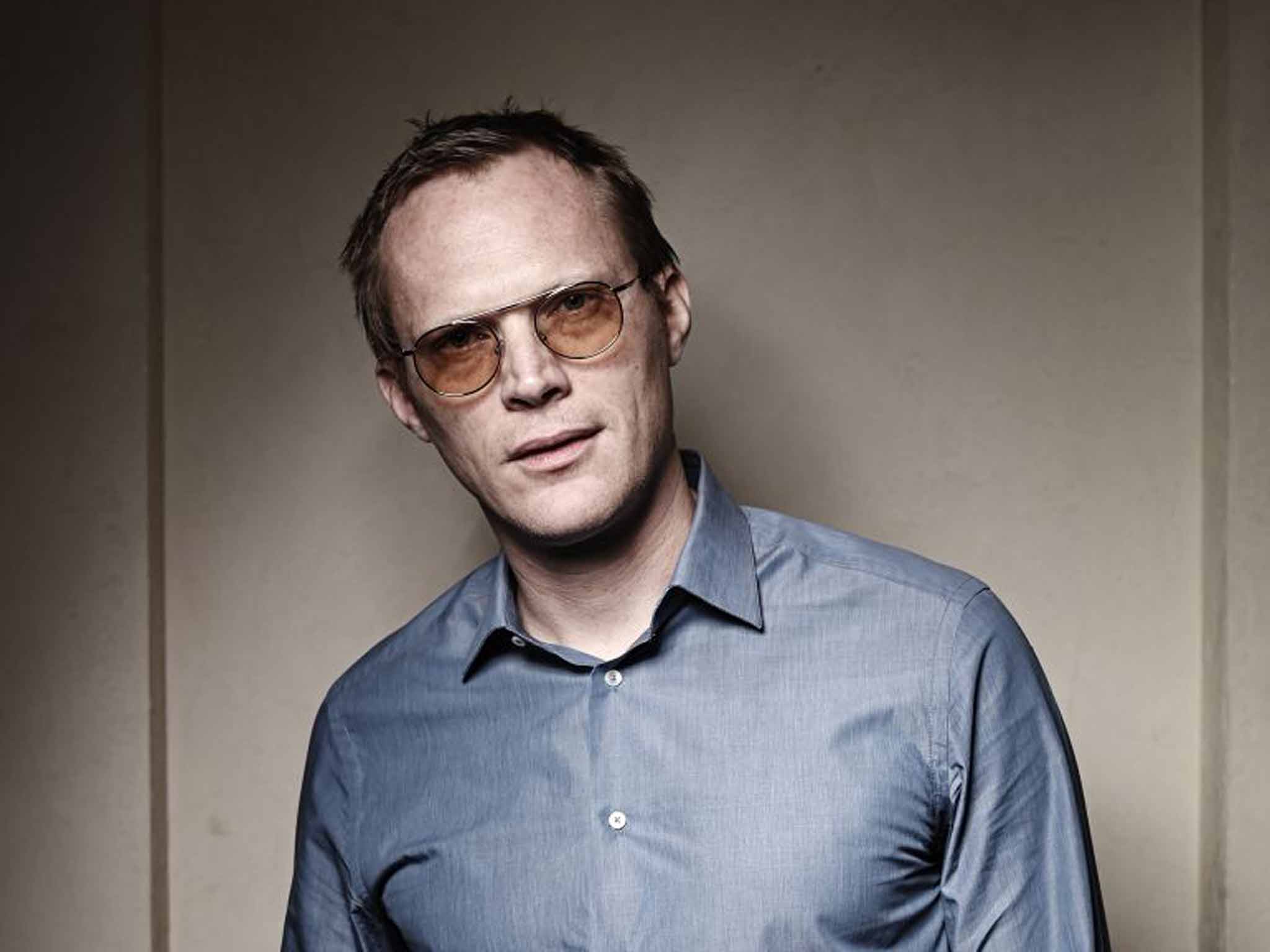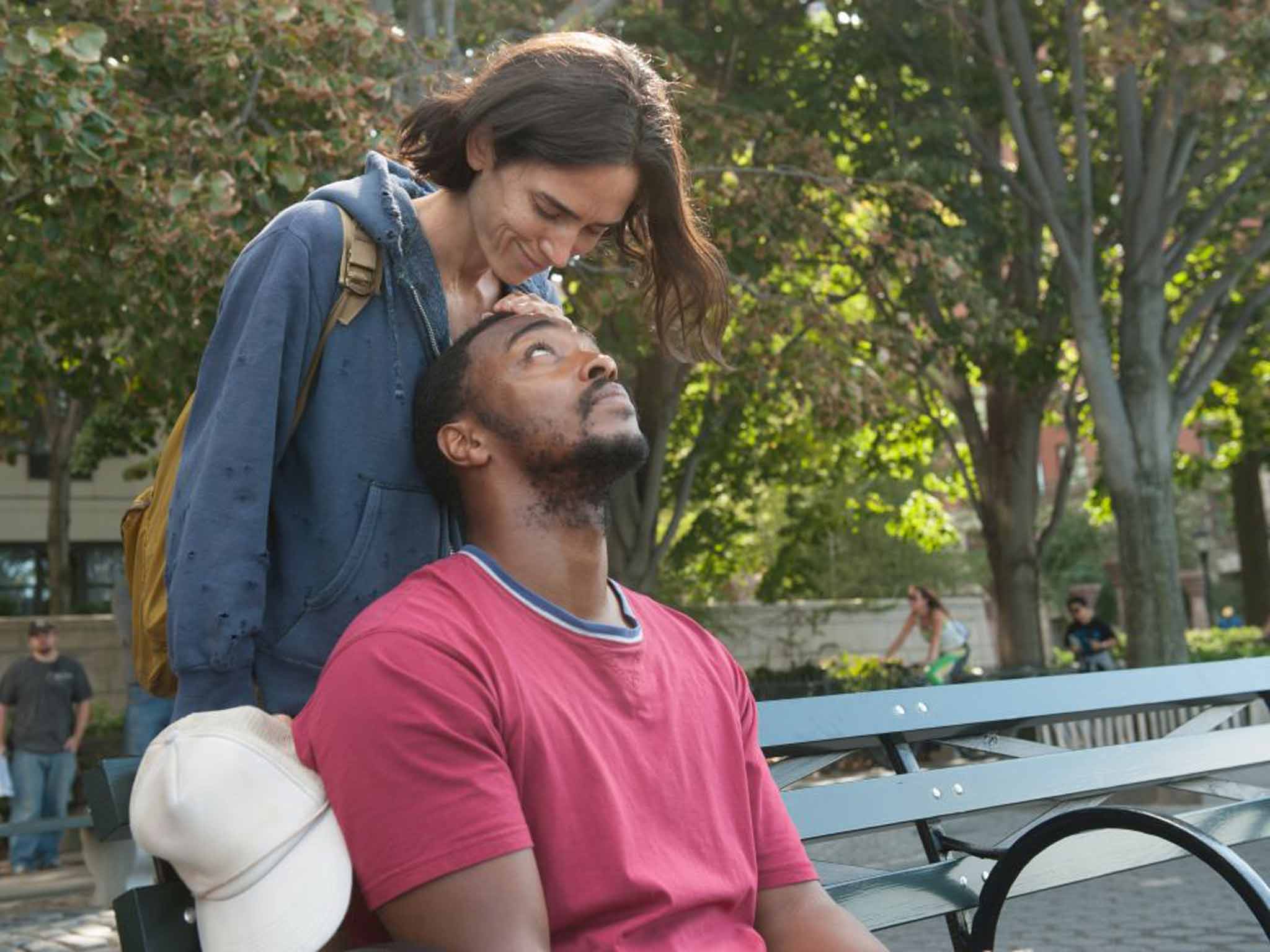Paul Bettany on 'Shelter' and why his directorial debut is about homelessness, not Hollywood
The Hollywood actor Paul Bettany has written and directed his first film, based on two homeless people who used to live on the pavement outside his New York home. He tells Kaleem Aftab how his early life as a drop-out and busker inspired him

Your support helps us to tell the story
From reproductive rights to climate change to Big Tech, The Independent is on the ground when the story is developing. Whether it's investigating the financials of Elon Musk's pro-Trump PAC or producing our latest documentary, 'The A Word', which shines a light on the American women fighting for reproductive rights, we know how important it is to parse out the facts from the messaging.
At such a critical moment in US history, we need reporters on the ground. Your donation allows us to keep sending journalists to speak to both sides of the story.
The Independent is trusted by Americans across the entire political spectrum. And unlike many other quality news outlets, we choose not to lock Americans out of our reporting and analysis with paywalls. We believe quality journalism should be available to everyone, paid for by those who can afford it.
Your support makes all the difference.The directorial debut of Paul Bettany comes as something of a surprise. As an actor, he has been on the Marvel gravy train of late, voicing computer programme J.A.R.V.I.S. (Tony Stark's AI assistant) in the Iron Man and Avengers movies. He must have been saving the artistic endeavour for his first feature – at times, Shelter, which tells the story of a homeless couple falling in love in a snowy Manhattan, recalls the works of Ken Loach.
Bettany's story was inspired by a couple who lived on the street outside the New York house he shares with his Oscar-winning actress wife, Jennifer Connelly, and their children. Connelly plays the female lead, a drug addict. “I had an instinct to write about the couple from in front of my door. On the school run, I would say hello to them,” Bettany says. “Occasionally, I would give them money. But more and more they became invisible to me and, as homelessness spiralled out of control, they became part of the landscape.” He said he would only notice them again when they had been moved on.
The British actor, 44, who grew up in Shepherd's Bush, west London, has been eyeing the director's chair for years. Ron Howard, who directed Bettany in A Beautiful Mind in 2001, had been asking his former charge when he was going to make his first film. “I was waiting for the director's secret,” recalls the actor. Finally, it dawned on him: you make a film and learn from your mistakes.

It still took a while. After shooting Shelter he had to go off and shoot another film, and had to wait four months before he could concentrate on the edit. His director friend Darren Aronofsky told him that he was lucky to have the space and time to come back to the editing process with a fresh mind. Bettany disagreed. “It's like when you are a virgin, you want to know that your cock works,” he sums up, memorably.
Long before he started shooting, he showed the script to Coalition for the Homeless, an advocacy group in New York, who vetted it. Bettany wanted to highlight the bureaucracy that prevents the homeless from getting help and finding shelter. “But I didn't want to make a film about homelessness,” he insists. “I wanted it to be about judgment.”
It is here that the description that Bettany uses on his Twitter account is revealing: “Actor. Dad. Director. Opinions not my own – often they're Robert Fisk's.” The writings of The Independent's Middle East correspondent can be seen in the way that world politics are brought into the script through the background of its Nigerian protagonist, a former Boko Haram member played by Anthony Mackie.
“I tend to write about things that are current to me,” Bettany says. “It's not that the film is about that, but I do think that we are all living this war that is in our papers every day. [More so] if your intention is to create the worst that a woman can be in our culture, a drug addict who abandons her child, and an ex-terrorist, and make you forgive them. Because I do think that it's urgent. I didn't want to make a sweeping statement, but I want to have people maybe reserve their judgment. It's just that people are eminently forgivable.”
While much of what is on screen in Shelter couldn't be further removed from the luxurious life led by a Hollywood couple, scratch beneath the surface and Bettany's personal experience is threaded through the dialogue and plot. As a teenager, he dropped out of school and started making money by busking.

“I didn't want it to become part of a narrative in discussing the film,” he says of his past. “Because I think it's a sticky subject. It's a bit like politicians kissing babies. I didn't want it to come up, but I imagine it was [part of my desire to make the film.]” He then recalls the story of Barry, a fellow busker, who used to give him his earnings at the end of every night, because he didn't want to be a target for muggers.
Bettany's younger brother died when he was 16 and his painful experience of dealing with loss appears in his screenplay in various ways. “I suppose it all did feed into it,” he says.
“My father, who has just died, was a very religious man,” says Bettany. “I'm not. I was raised a Catholic and he used to say this thing whenever we passed a homeless person, 'There but for the grace of God, go I.' Although I'm not a religious man, I love that sentence. There is an admission of how easily it can be us.”
It is Bettany's luck that the only thing he is addicted to is nicotine gum, which he is chewing, like a cow munching cud, when our interview begins.
In the course of his research, Bettany chatted to former stockbrokers now living on the streets and drug addicts who had lost everything. Empathy was key, and is something Bettany feels is lacking in the current discussion about Syrian refugees and border controls. “To me the whole of human history is about migration, settling and then migration,” he says. “In terms of the rhetoric that comes out of Donald Trump's mouth… there is a lack of empathy. If you couldn't keep your family safe where you were, you would move. Nothing would stop you.”
Of course, Bettany is a migrant himself, having moved to New York to live with his American wife and tap into a more profitable market for actors. He says that because his work takes him to locations all over the world, it was five years before he really appreciated that he had left London. “Then I went through terrible homesickness. But five or six years ago I realised I had got through to the other side. It's a rarefied version of migration. I live in a really nice apartment that I manage to complain about all the time, which is what you do as a New Yorker. You create problems where there aren't real problems.”
Indeed, while Bettany was working on Shelter, he was writing another script that better reflects his own life – a satire about life in the upmarket Hamptons area of Long Island, in which so-called “first-world problems” are at the fore. “The Hamptons satire is a lot more like Chekhov without the troubling, deep, clever bit, and nobody stares at a duck.”
Bettany is also working on a television project with Reza Aslan, a Muslim scholar and professor of creative writing at the University of California, who became a viral hit when he lambasted a Fox News anchor for questioning his right to write a book about Jesus. “He is wickedly funny and irreverent and the best dinner companion ever,” says Bettany.
I put it to the actor that it's potentially an odd move to cast his own wife as a junkie who sells her body. “After she read it, she said, 'Paul, I think we need to go to couple's therapy!'”
More seriously, he adds that it helped to have an Oscar winner around the house when he was trying to raise finance for the film. He learned quickly never to try to make a movie in 21 days, and that no one wants to finance a film about a homeless drug addict and a former terrorist.
“[Jennifer] is incredibly honest about my artistic endeavours – brutally so,” says Bettany. “She read it and wanted to do it. She clearly couldn't trust me as a film-maker because she had no frame of reference for that, but I think she can trust that she will be able to kick the shit out of me for the rest of our marriage if I put something in the movie she was upset by.”
'Shelter' is released on 11 December
Join our commenting forum
Join thought-provoking conversations, follow other Independent readers and see their replies
Comments